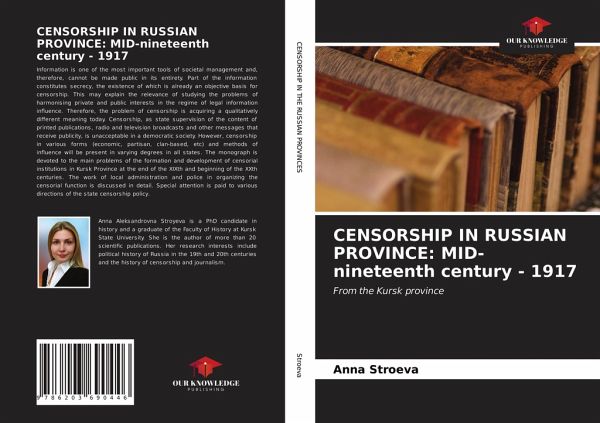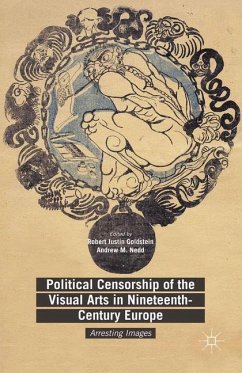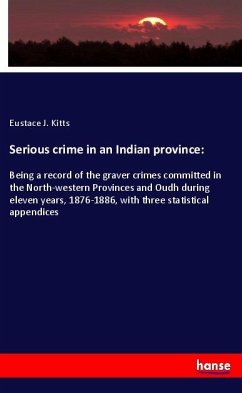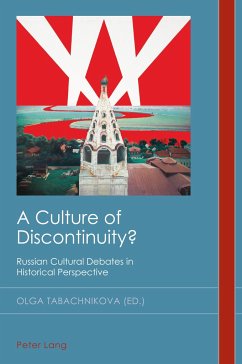
CENSORSHIP IN RUSSIAN PROVINCE: MID-nineteenth century - 1917
From the Kursk province
Versandkostenfrei!
Versandfertig in 6-10 Tagen
52,99 €
inkl. MwSt.

PAYBACK Punkte
26 °P sammeln!
Information is one of the most important tools of societal management and, therefore, cannot be made public in its entirety. Part of the information constitutes secrecy, the existence of which is already an objective basis for censorship. This may explain the relevance of studying the problems of harmonising private and public interests in the regime of legal information influence. Therefore, the problem of censorship is acquiring a qualitatively different meaning today. Censorship, as state supervision of the content of printed publications, radio and television broadcasts and other messages ...
Information is one of the most important tools of societal management and, therefore, cannot be made public in its entirety. Part of the information constitutes secrecy, the existence of which is already an objective basis for censorship. This may explain the relevance of studying the problems of harmonising private and public interests in the regime of legal information influence. Therefore, the problem of censorship is acquiring a qualitatively different meaning today. Censorship, as state supervision of the content of printed publications, radio and television broadcasts and other messages that receive publicity, is unacceptable in a democratic society. However, censorship in various forms (economic, partisan, clan-based, etc) and methods of influence will be present in varying degrees in all states. The monograph is devoted to the main problems of the formation and development of censorial institutions in Kursk Province at the end of the XIXth and beginning of the XXth centuries. The work of local administration and police in organizing the censorial function is discussed in detail. Special attention is paid to various directions of the state censorship policy.
Information is one of the most important tools of societal management and, therefore, cannot be made public in its entirety. Part of the information constitutes secrecy, the existence of which is already an objective basis for censorship. This may explain the relevance of studying the problems of harmonising private and public interests in the regime of legal information influence. Therefore, the problem of censorship is acquiring a qualitatively different meaning today. Censorship, as state supervision of the content of printed publications, radio and television broadcasts and other messages that receive publicity, is unacceptable in a democratic society. However, censorship in various forms (economic, partisan, clan-based, etc) and methods of influence will be present in varying degrees in all states. The monograph is devoted to the main problems of the formation and development of censorial institutions in Kursk Province at the end of the XIXth and beginning of the XXth centuries. The work of local administration and police in organizing the censorial function is discussed in detail. Special attention is paid to various directions of the state censorship policy.
Information is one of the most important tools of societal management and, therefore, cannot be made public in its entirety. Part of the information constitutes secrecy, the existence of which is already an objective basis for censorship. This may explain the relevance of studying the problems of harmonising private and public interests in the regime of legal information influence. Therefore, the problem of censorship is acquiring a qualitatively different meaning today. Censorship, as state supervision of the content of printed publications, radio and television broadcasts and other messages that receive publicity, is unacceptable in a democratic society. However, censorship in various forms (economic, partisan, clan-based, etc) and methods of influence will be present in varying degrees in all states. The monograph is devoted to the main problems of the formation and development of censorial institutions in Kursk Province at the end of the XIXth and beginning of the XXth centuries. The work of local administration and police in organizing the censorial function is discussed in detail. Special attention is paid to various directions of the state censorship policy.












